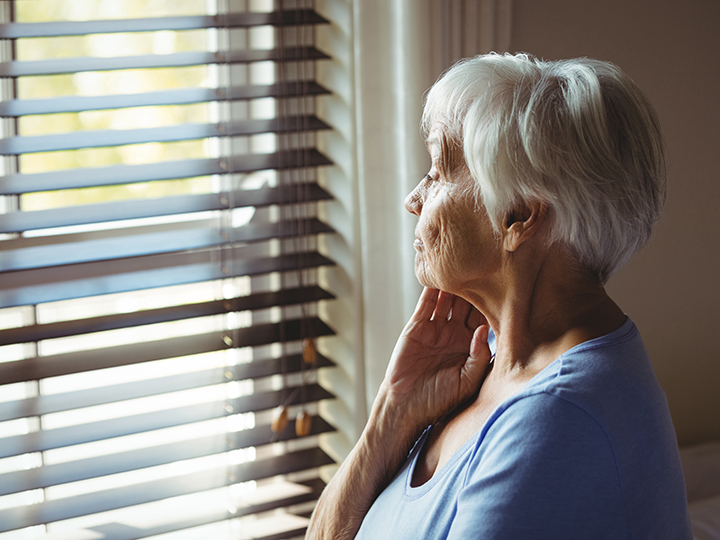 Stressed out?
Stressed out?
You’re not alone. Many older adults experience periods of stress, especially when facing transitional periods such as retirement or moving to a new home.
To manage your stress, the first step is understanding where it’s coming from. Let’s explore some of the common causes of stress in older adults—and how to cope.
The Good News: Older Adults Tend To Have Better Mental Health Than Younger Adults
In a 2016 study published in the Journal of Clinical Psychiatry, it was found that older adults tend to have better mental health than those in their 20s and 30s—despite age-related physical and mental changes. This included improvements in stress levels.
“Our findings support the existence of a ‘paradox’ in which aging is associated with better mental health among older adults at the population level despite the loss of physical and cognitive function,” researchers wrote in their findings.
Why are older adults experiencing less stress than the younger population? There’s not a conclusive answer, but the researchers who worked on the 2016 study have a guess: wisdom.
“An important explanation for improved mental health in later life is an increase in wisdom with aging, as suggested by several (but not all) studies,” they wrote. “Researchers have reported that, compared to younger adults, older individuals tend to be more skilled at emotional regulation and complex social decision making, and to exhibit more positively balanced information processing.”
Physical Changes That Can Increase Stress for Older Adults
Older adults may not be as affected by stress as 20-year-olds, but that doesn’t mean they’re immune. In fact, it may be more difficult to physically cope with stress as we age.
“We tend to have less resilience to stress, and older adults often find that stress affects them differently now,” said Dr. Michelle Dossett in the Harvard Health Letter.
Why is this? Dr. Dosset explained that it’s partly because of the physical changes we experience in our 50s and beyond. For example, your heart fitness and lung capacity may decline over time, which makes your body’s natural response to stress more difficult to handle physically. When stress causes your brain to release hormones that ramp up your breathing and heartbeat, your body may not be able to handle it as well as it did when you were younger.
Not only can physical changes reduce our ability to cope with stress as age, but they can be the source of stress as well. For example, stress in older adults can be caused by:
- Recurring pain or discomfort
- Mobility issues
- Coronary artery disease
Situational Changes That May Elevate Stress Levels in Older Adults
As Dr. Dossett points out, we tend to run into different stress triggers at age 60 than we did at age 20. At a young age, a stressful situation may be a looming midterm exam or a parking ticket. That’s not to say that people in their 20s don’t face “real” stress (of course they do), but older adults may encounter emotionally stressful situations that are more severe and occur more often.
“Stressors that tend to affect seniors are the loss of a loved one; too much unstructured time on your hands; a change in relationships with children; or a loss of physical abilities, such as vision, hearing, balance, or mobility,” says Dr. Dossett.
Some situational causes of stress in older adults include:
- Retirement
- Financial concerns about the future
- Caretaking demands for a spouse, parent or other loved one
- Moving to a new residence
The Importance of Stress Management
Managing your stress is vital to maintaining your health. Left unchecked, stress can take a real toll on your physical health.
For example, AARP shares these health conditions that can be caused or made worse by stress:
- The common cold
- Weight gain
- Slower healing
- Sleep dysfunction
- Heart disease
- Depression
- Ulcers and other stomach problems
- Back, neck and shoulder pain
Beyond risks to your physical health, stress can take a toll on your mental health as well. If you experience prolonged periods of stress, you could suffer from anxiety, irritability, social withdrawal or depression.
By reducing your stress, you can help reduce your risk of stress-related illnesses or conditions.
How to Cope with Stress
There are many things you can do to lower your stress levels. If you are experiencing high levels of stress, you should seek help from a counselor or doctor. However, for everyday stressors life throws in your way, there are many things you can try on your own, including:
- Eating healthy, well-balanced meals
- Exercising regularly
- Getting plenty of sleep
- Meditating
- Setting aside time for yourself
If you’re looking for more stress management activities, you’ll find 25 ideas in our blog, Stress Relief Tips for Seniors (and Everyone Else).
Connect with Chicago’s Senior Living Experts
The Admiral at the Lake’s Residency Counselors are available to discuss how you can maintain your health and wellness through our fitness programs and other services available within our senior living community.
Questions?
Our team can provide the information you need.
Schedule a Tour
Experience The Admiral at the Lake with a personal tour
Receive Updates
Discover what’s new and interesting in our community.
